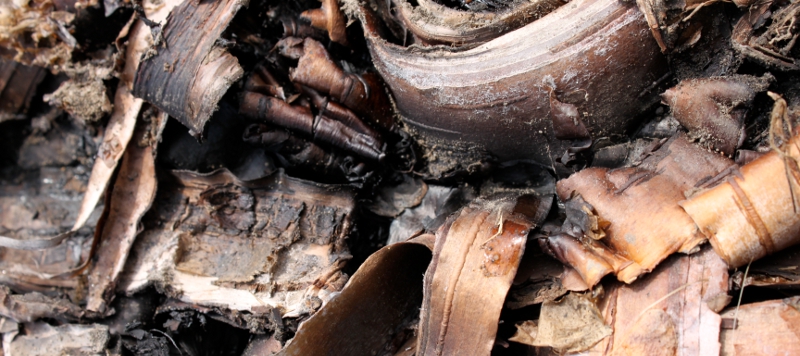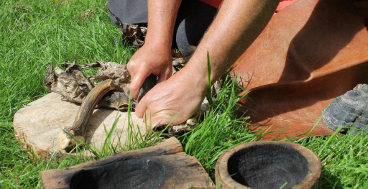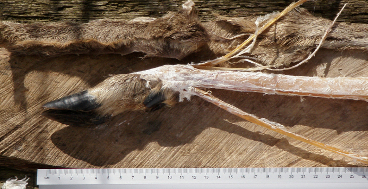About us
The Mesolithic Resource Group is an independent research group, which formed in 2006 to investigate the use of materials and technologies during the Mesolithic period of northern Europe.
The Mesolithic period spans the Middle Stone Age (11,500 - 6,000 years ago) and by drawing from archaeology, anthropology, ethnography, the environment, and craft traditions, we test the possibilities of the past through experimental archaeology with an emphasis on ancient and primitive skills.

By having a knowledge of the environmental resources of our ancestors, and by using those resources in realistic experiments, we can gain a greater understanding of how our ancestors lived, as well as improving our knowledge of seasonality and procurement.
Our recent research includes an investigation of birch bark tar production in the Middle Palaeolithic and Mesolithic fishing techniques in western Scotland.
Public participation and education is where Experimental Archaeology has a real strength, we achieve this through our outreach programme of workshops, interactive displays and by encouraging involvement in our practical sessions.
We conduct bespoke workshops and demonstrations in a range of Primitive Skills and technologies, including: primitive jewellery, bone and antler work, cordage making, primitive fishing, green-wood working, and primitive fire making.
Alternatively, we can offer suggestions on the use of Experimental Archaeology, such as viable hypotheses, methodologies, and the execution of the experiments, regardless of technology and period.
Please contact us if you would like to discuss collaborative projects or ideas for experiments.



